Sleep disorders are regularly experienced by millions of people around the world, which is insomnia. Insomnia is a sleep disorder that makes it difficult for a person to fall asleep or stay asleep.
According to the Centers for Disease Control and Prevention (CDC), adults require an average of seven to nine hours of sleep per day, depending on their age, according to Centers for Disease Control and Prevention (CDC).
There are about 25% of Americans experience insomnia each year, but over 75% of them will not become chronic insomniacs.
Sleeping too little can make you tired during the daytime, difficult to concentrate, and other problems. Various diseases may be increased in the long run as a result.
There are many causes, symptoms, diagnoses, and treatments of insomnia, so this article explains what insomnia is as well as what causes it.
Readout: Selective Mutism
How does one become an insomniac?
Computer use before bed could stay with a person into the night, making it difficult for them to fall asleep.
Sleeping problems occur when a person is unable to fall or stay asleep. They may wake up too early every day.
The following issues can arise as a result:
- Lethargy and sleepiness during the day
- Feelings of mental and physical exhaustion
- Anxiety, mood changes and irritability
As well as these problems, insomnia can also come from one or more of these causes.
Sleep disorders, including insomnia, may also play a role in the development of chronic diseases, including:
- Weight gain
- Diabetes
- Cardiovascular disease
- Depression
Furthermore, it can undermine a person’s ability to perform at work and in school and limit their daily activities.
Check: Attention Deficit Hyperactivity Disorder (ADHD)
Causes of insomnia
Many factors can cause insomnia, including physical and psychological factors. Stress and other temporary problems are often the cause. A medical condition may also cause insomnia in some individuals.
The following are the common insomnia causes:
- Jet lag, changing shifts at work, or any other change to the body’s internal clock
- Too hot, too cold, or too noisy in the room or an uncomfortable bed
- Sleep disturbances caused by caring for a family member
- Getting insufficient physical activity
- Feeling frightened or having nightmares
- Drugs like cocaine and ecstasy may be used recreationally
Some people are affected by insomnia because of stress or psychological problems. The following symptoms may be experienced by someone:
Sleep problems can also be caused by:
- Restless legs syndrome
- Overactive thyroid
- Sleep apnea
- Gastrointestinal reflux disease, commonly called GERD
- Chronic obstructive pulmonary disease, known as COPD
- Chronic pain
Sometimes sleeping problems are caused by other health issues, such as those associated with a natural transition. Women suffering from menopause may suffer from night sweats, a condition that interferes with sleep.
Sleep patterns can be disrupted or altered in people with Alzheimer’s disease.
Some people suffer from fatal familial insomnia, a condition characterized by intense sleeplessness and even life-threatening complications.
Also, check: Side Effects of Overthinking
Media technology in the bedroom
A recent report suggests that young people can suffer from sleep problems from using screens before bed.
Adults may also experience sleep problems when using these devices. After lights out, recreational use seems to increase the chances of insomnia.
Check: Types of Overthinking
Medications
Among the medications that can cause insomnia is this list compiled by the American Association of Retired Persons:
- Corticosteroids
- Statins
- Alpha-blockers
- Beta-blockers
- Serotonin reuptake inhibitors, or SSRIs, are antidepressants
- Angiotensin-converting enzyme, or ACE, inhibitors
- Angiotensin II receptor blockers, or ARBs
- Cholinesterase inhibitors
- Nonsedating H1 agonists
- Chondroitin and glucosamine combined
Symptoms of insomnia
As well as disrupted sleep, insomnia symptoms may lead to the following problems:
- Sleepiness or fatigue during the day
- Anxiety, depression or irritability
- Gastrointestinal symptoms
- Lack of motivation or energy
- Confusion and lack of focus
- Errors or accidents caused by a lack of coordination
- Anxiety-related to sleep
- Sleeping with alcohol or medication
- Tension headaches
- Social, work or study difficulties
Experts say that not getting enough sleep plays a major role in auto accidents.
Read: Central Sleep Apnea
Types of insomnia

There are several types of insomnia, according to duration:
- Short-term insomnia is an acute, transient condition.
- Chronic insomnia can persist for months or even years at a time.
It can also be classified by cause:
- It is an issue by itself if you suffer from primary insomnia.
- Secondarily, insomnia is related to another medical condition.
The severity is also classified:
- The lack of sleep that causes mild insomnia results in fatigue.
- It may become difficult to function normally when you have moderate insomnia.
- The effects of severe insomnia can be severe.
Other factors are considered by doctors when it comes to diagnosing insomnia, such as whether the person consistently wakes up early or experiences difficulty:
- Falling asleep
- Staying asleep
- Getting restorative sleep
Read: Psychophysiological Insomnia
Insomnia diagnosis
Sleep disorders can be diagnosed and treated by a sleep specialist. Their actions may include:
- Inform the person about his or her medical history, sleep routine and drug and alcohol use
- Examine your physical condition
- Examine the underlying cause
- Sleep patterns can be recorded by an overnight sleep test
- Track your sleep patterns and movements with a wearable device
A doctor may diagnose insomnia based on the Diagnostic and Statistical Manual of Mental Disorders, Fifth Edition:
- It is difficult for a person to fall asleep or stay asleep.
- Despite adequate sleep opportunities, this occurs at least three nights every week for three months.
- Daily life is negatively affected.
- It cannot be explained by any other factor.
It is helpful for doctors to see sleep patterns recorded in a diary.
Recommended: Multiple Strategies to Control Overthinking
Insomnia Treatments
If insomnia has an underlying cause or type, determine the best insomnia treatment approach, but some options can include:
- Counseling
- Cognitive-behavioral therapy (CBT)
- Prescription medications
- Online sleep aids that are available over the counter
- Melatonin
Melatonin does not appear to be effective in treating sleep disorders, however, there is no strong evidence to support this.
Recommended: How to help someone with Depression
Home care strategies
Insomnia can be managed in various ways. Changes will be made to:
Sleeping habits
Whenever possible, it is helpful to:
- Establish a routine by going to bed and waking up at the same time each day.
- Use no screen before you go to bed.
- Take a bath an hour before going to bed to wind down.
- Keep electronics out of the bedroom.
- It is important to have a comfortable temperature in the room before sleeping.
- To darken the room, use blackout curtains or blinds.
Also check: Stress Management Techniques
Dietary habits
- Eat a light dinner before going to sleep. Before bed, eat a healthy snack.
- A heavy meal should be avoided 2–3 hours before going to bed.
- Don’t drink alcohol or caffeine after midnight.
- Boost your wellbeing by eating a balanced, varied diet.
Other health concerns
Acid reflux sufferers or those with a cough could benefit from having one or more extra pillows supporting their upper bodies.
Consult your doctor if you have a cough, pain, or other symptoms that are preventing you from sleeping.
Relaxation and well-being
- Regularly exercise, but not right before bed.
- Breathe and relax before going to bed.
- Listen to soothing music or read a book to help you sleep.
- Even if you feel sleepy, don’t nap during the day.
- Take medicine for anxiety and other mental health issues.
Check: Tips to Overcome Depression
Factors of risk
The risk of insomnia increases with age, but some factors increase the risk. The following are among them:
- Time difference when traveling
- Working in shifts
- Getting older
- Drinking alcohol, taking caffeine, or using drugs and medications
- Insomnia running in the family
- Life’s significant events
- Being pregnant
- During menopause
- Being physically or mentally ill
- Being female
Read: How Pandemic COVID-19 Affects Our Dreams
Complications
The importance of sleep in maintaining good health is equal to the importance of a healthy diet and regular exercise. You can be affected both mentally and physically by insomnia, regardless of the reason for your sleep loss. There is a lower quality of life for people who suffer from insomnia compared with those who sleep well.
There are a number of complications associated with insomnia, including:
- Performing poorly at work or in school
- An increased risk of accidents due to slowed reaction time while driving
- Psychiatric disorders like depression, anxiety disorders, and substance abuse
- Long-term diseases or conditions, such as hypertension and heart disease, are more likely to occur and to be more severe
Insomnia and pregnancy
The first and third trimesters of pregnancy are the most common times to experience insomnia.
Sleep problems can be caused by a number of factors, including:
- Body changes, such as fluctuating hormone levels, nausea, and an increased need for urination
- Being a new parent will increase your anxiety and stress
- Back discomfort and cramps
Sleep problems associated with pregnancy usually pass and don’t affect the development of your baby. It is still important to get enough sleep for overall well-being.
Insomnia during pregnancy can be treated with lifestyle changes such as:
- Physical activity on a regular basis
- Consuming a balanced diet
- Make sure you stay hydrated
- Maintaining a regular sleep schedule
- Relaxation techniques can calm anxiety and ease stress during the day
- Before going to sleep, take a warm bath
Before starting a new exercise routine, taking medication, or taking supplements during pregnancy, make sure you consult your healthcare provider.
Insomnia in children
It is often the same reasons that lead to insomnia in children as it is in adults. There are several reasons for this, including:
- Stress
- Medications
- Heavy caffeine intake
- An illness or condition that affects the body or the mind
It is possible that your child has insomnia if he or she has difficulty falling asleep and staying asleep, or if they tend to be wakeful too early.
Children who suffer from insomnia often experience the following symptoms:
- Feeling sleepy or restless during the day
- Changes in mood and irritability
- Discipline issues occurring repeatedly
- Memory and concentration problems
It is generally recommended that children who struggle with insomnia first be given a firm bedtime and remain consistent with it. The following tips may also be helpful:
- Setting up a relaxing bedtime routine
- Avoiding screen time near bedtime as part of good sleep hygiene practices
- Make sure your child has fewer stressors in his or her life
Children can benefit from the advice of a therapist or pediatrician regarding how to treat insomnia.
Insomnia in older adulthood
A study conducted in 2019 suggests that 75 percent of older adults experience insomnia at some point in their lives.
The following factors can have a domino effect on insomnia in older adults:
- Sleeping or staying asleep may become more difficult with age-related changes to your circadian rhythm.
- Retirement can make it difficult to maintain a consistent schedule or connect with friends, both of which can lead to insomnia.
- Loneliness and depression can result from social isolation, which also increases your risk of sleep problems.
- Chronic pain conditions, which are associated with aging, can also negatively affect your sleep.
- Drowsiness and fatigue during the day may be caused by not getting enough sleep at night. This may lead to you napping more often. It’s no secret that naps can leave you feeling less tired at bedtime, perpetuating a cycle of sleep deprivation.
It can be helpful to speak with a therapist or clinician if you are experiencing insomnia in order to find useful treatment options.
Insomnia and anxiety
Do you ever find yourself unable to sleep because of something out of your control?
There is often a link between insomnia and anxiety, and both can play a role.
The persistent feelings of worry and fear might make it difficult for you to fall asleep. The problem is that chronic insomnia can make you worried about the sleep you’re missing, as well as make it even harder to cope with difficult and unwanted emotions during the day.
Support from a mental health professional can help you begin to address all of your symptoms, whether you’re dealing with an anxiety disorder or short-term anxiety related to a specific stressor.
Behavioral therapy (CBT) may help you manage both insomnia and anxiety if they are related (more on this later). If you have milder anxiety, you can manage it yourself by doing the following:
- Dietary additions that reduce anxiety
- Getting some exercise every day
- Make self-care a priority by incorporating relaxation strategies
- Maintaining a hobby or enjoying a hobby is important
Insomnia and depression
Depression and insomnia are closely linked, according to evidence:
- Several studies have shown that poor sleep increases depression risk, especially during stressful times
- Study results indicate that persistent insomnia symptoms increase the risk of depression in adults who were not diagnosed with either insomnia or depression at the start of the study
Depression is also associated with sleeping problems, including insomnia. Insomnia and depression often respond to the same treatments, regardless of the order in which they occur.
There are a number of different treatment options available, including:
- Therapy, including CBT
- Antidepressants
- Changing lifestyle habits, such as improving sleep habits, exercising regularly and meditating
Prevention
It is possible to promote sound sleep and prevent insomnia by following the following sleep habits:
- Consistently get up and go to bed at the same time every day, even on weekends
- Make sure you stay active – regular exercise helps you sleep better
- Make sure your medications are not contributing to your insomnia
- Limit or avoid napping
- Keep caffeine and alcohol to a minimum, and do not use nicotine
- Be careful not to eat or drink large amounts of food before bedtime
- Use your bedroom only for sleeping and sex
- Take a warm bath, read a book, or listen to soft music before going to bed
Takeaway
Many people suffer from insomnia. The condition can be caused by a variety of factors, including physical or emotional health issues. These factors may be environmental or related to lifestyle factors, including shift work, caffeine or alcohol use.
Sleep deprivation can cause a number of problems, including mild tiredness and chronic illnesses.
Those who experience chronic sleep problems and feel that it is affecting their lives should consult a physician who can assess the problem and recommend a treatment plan.
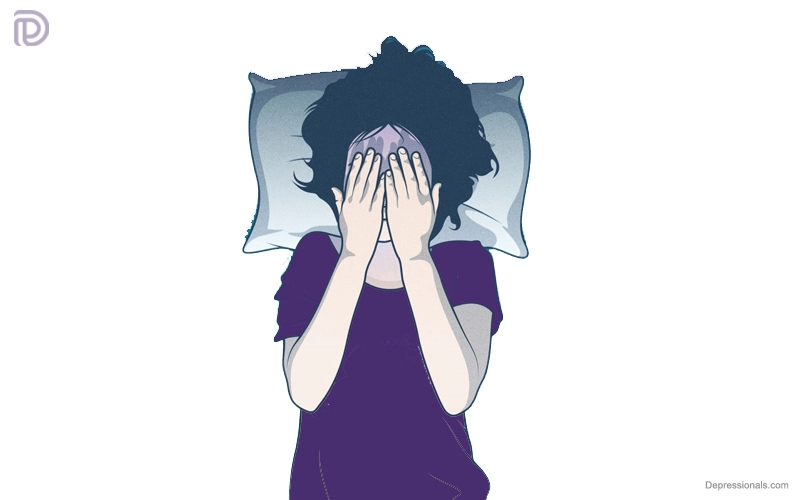
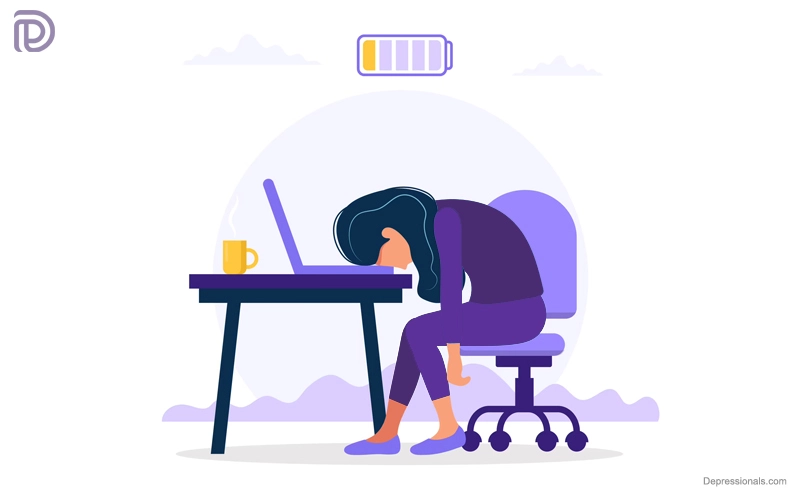
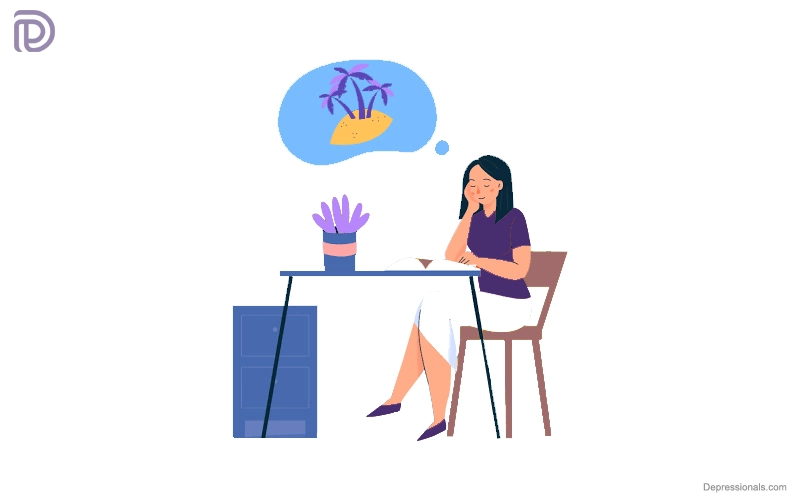
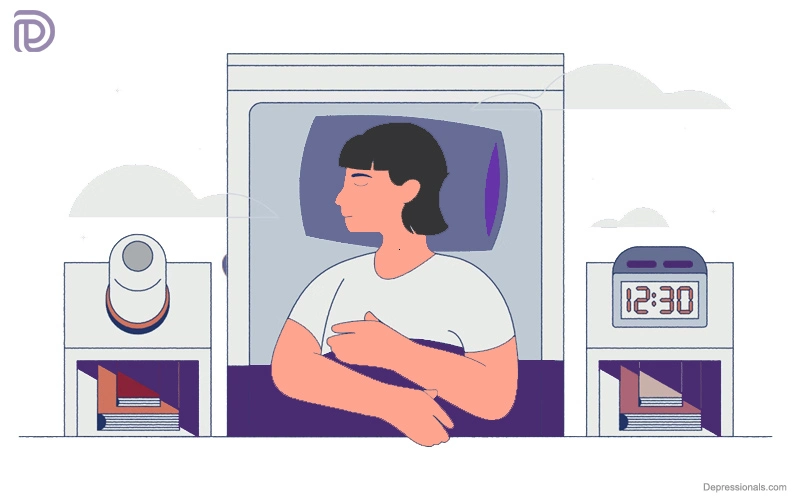
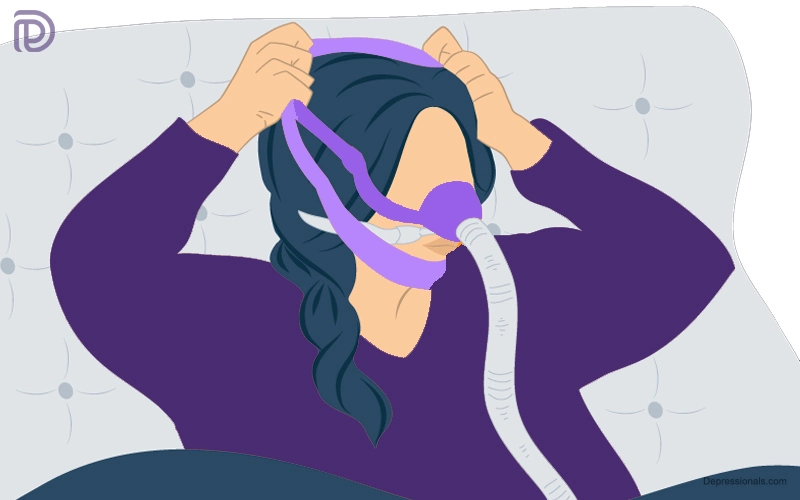

After study a few of the blog posts on your website now, and I truly like your way of blogging. I bookmarked it to my bookmark website list and will be checking back soon. Pls check out my web site as well and let me know what you think.
depressionals is the best place where I read about my problem. Thanks.